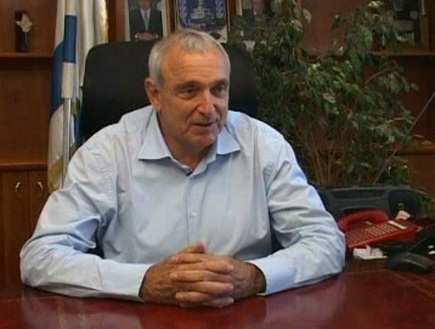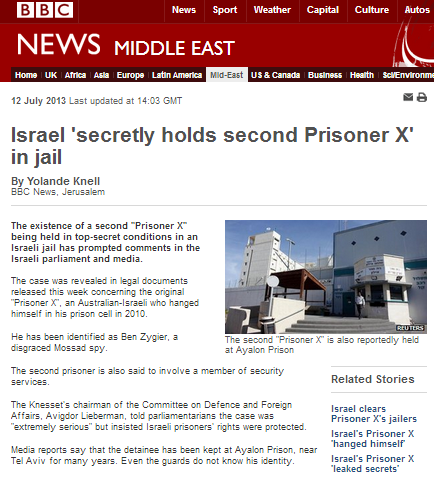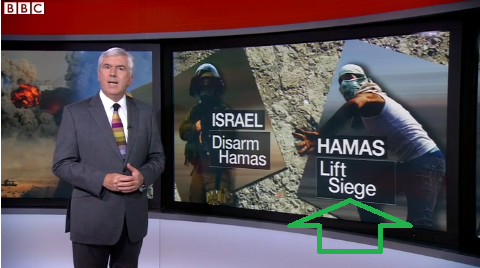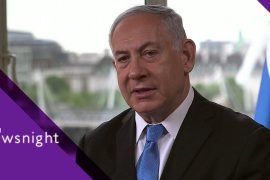On July 12th the BBC News website’s Middle East page carried a story written by the BBC Jerusalem Bureau’s Yolande Knell entitled “Israel ‘secretly holds second Prisoner X’ in jail“.
As was so often the case in the BBC’s extensive coverage of the Ben Zygier story back in February, much of Knell’s article is based on reworked speculative reports from other media sources, but it also has some ‘original features’.
Knell states: [emphasis added]
“The Knesset’s chairman of the Committee on Defence and Foreign Affairs, Avigdor Lieberman, told parliamentarians the case was “extremely serious” but insisted Israeli prisoners’ rights were protected.”
In none of the media reports in the original Hebrew in which MK Lieberman’s remarks were made last Wednesday is there any evidence of his having spoken of specifically Israeli prisoners.
Channel 2 reports that Lieberman said “אנחנו שומרים על כל הזכויות בהתאם לחוק” (We are protecting all the rights according to the law) and Channel 10 states that “he noted that the State of Israel protects all the rights of the prisoners according to the law”:
“ציין כי מדינת ישראל שומרת על כל הזכויות של האסירים, בהתאם לחוק”
Walla also reports that Lieberman said “אנו שומרים על כל הזכויות בהתאם לחוק” (We are protecting all the rights according to the law), as does Israel HaYom. Yediot Aharonot’s website Ynet uses the same wording as Channel 10 – “the State of Israel protects all the rights of the prisoners according to the law” – as does Ma’ariv. And as Hebrew speakers can see in this video of the committee meeting at which Lieberman’s remarks were made, he did not make any reference to the rights of specifically Israeli prisoners at all.
So why did Yolande Knell find it necessary to add the word “Israeli”?
Later on in her report, Knell tries to imply some sort of dishonesty on the part of the Israeli government:
“When the [Ben Zygier] case was first in the headlines, Israel’s Internal Security Minister, Yitzhak Aharonovitch, said that there were no other hidden prisoners.
This week the minister said he stood by those comments as arrests were reported and handled by the prosecution and courts in accordance with the law. However, he admitted there were some cases that remained confidential for national security reasons.”
Did Minister Aharonovitch in fact say that there were no other “hidden prisoners” as Knell claims? 
What he did say at the time can be seen in the video in this article in which the Minister reads his own words from the minutes of the Knesset meeting of 20.2.2013.
“אין במדינת ישראל עצורים עלומים ונעלמים. אין במדינת ישראל התנהלות במחשכים. יש במדינת ישראל פיקוח וליווי משפטי מתאים, הקפדה על החוקים והנהלים וכן יש גם דאגה לבטחונה של מדינת ישראל: דאגה שעל מנת לטפל בה, לעתים יש לפעול בחשאיות רבה.”
“In the State of Israel there are no nameless and disappeared prisoners. In the State of Israel there is no conduct in the shadows. In the State of Israel there is appropriate legal supervision and guidance and there is also concern for the security of the State of Israel: concern which in order to take care of it, sometimes it is [necessary] to operate in great secrecy.”
Minister Aharonovitch then further clarifies the point that whilst there may be prisoners whose personal details are not plastered all over the media, that does not mean that they are “hidden”:
“Indeed in the State of Israel there are no prisoners who disappear and their families do not know of their arrest. There are also no prisoners who disappear and the judicial authorities, the advocate and the courts do not take care of their affairs.”
Knell’s claim that Minister Aharonovitch “admitted there were some cases that remained confidential for national security reasons” [emphasis added] is a disingenuous attempt to make a sensationalist mountain out of a molehill. The minister did not ‘admit’ anything – he merely repeated the statement that in some specific cases publicity is not permitted due to security considerations.
Yolande Knell apparently either does not understand those considerations or is too busy trying to create a spicy story of intrigue for her audiences to relate to them with the gravity they deserve. As Ron Ben Yishai wrote recently on Ynet:
“When a person with such a profession commits an offense, stands trial and his real identity is exposed and reported in the media (usually accompanied by a photo), the hostile elements he spied against can learn very important additional details about his mission even if he didn’t tell them about it; and if he did, they can cross-check, verify its authenticity and find out new details which may be even more harmful – for example, who worked with him and helped him among the target population – thus, putting someone’s life in immediate and serious danger.”
Why can’t Knell just stick to the known facts instead of putting words never said into the mouths of Israeli officials?





